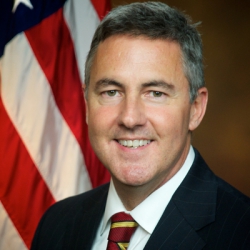Recently, US Attorney Thomas Walker made a deal with 5 software providers involved in the Internet gaming cafe industry to cease operations in North Carolina by July 1. If those five companies comply with the agreement, Walker will not pursue criminal charges with them for crimes they were alleged to have made in the past.
The News & Observer recently published an editorial lauding Thomas Walker’s agreement. The deal puts an end to a festering problem, while taking off the books potential cases which would have proven difficult for law enforcement officials to police and prosecutors to gain convictions. On the other side of the docket, the deal assures the companies which have been battling a ban and potential prosecution gets to keep their profits up to this point.
Rising Tide of Online Cafes in America
Internet slots cafes have been a growing problem throughout the United States in the past 5 years. In North Carolina, the industry has been particularly complicated. The gaming cafes have sprung up in cities across the state, offering big profits for business owners who invest in the computers and software to offer such games. The cafes are found in strip malls and shopping centers and look much like any other storefront in a shopping hub. Anyone walking by might think they are seeing a Starbucks or a kid’s gaming store, with people sitting around having refreshments and playing games on a computer.
Closer inspection would show that the cafe has more computers than a standard coffee shop might have at any given time, while the game enthusiasts are not playing Candy Crush. Instead, they are gambling on games which resemble slot machines.
Sweepstakes Prizes
Such cafes offer “prizes” in exchange for playing time bought on the computer. To get around laws against slots gaming, the prize pools work much like a sweepstakes would. In fact, business owners argue that they are offering sweepstakes gaming, not unlike someone who holds a raffle or who sends a flier through the snail mail. Because sweepstakes are legal, Internet cafes exist in a legal gray area.
State and local politicians have attempted to ban such gaming over the past few years, but the battle to do so has been frustrating. The top five providers have had the money to hire lobbyists the last few years in North Carolina to fight attempts to ban online cafes such as the ones described above.
Chase Burns Scandal
Chase Burns, a man connected to the industry, donated $230,000 to North Carolina politicians in 2012 alone. The list of politicians who received that money includes Governor Pat McCrory, state Sen. Phil Berger, the Republican president pro tem and North Carolina’s most powerful lawmaker, and former State House Speaker and current U.S. senator Thom Tillis. When the donations became known, all three claimed they did not know Chase Burns and donated his money to charities.
Mr. Burns eventually faced charges in 2013 in Florida. He pleaded no contest to charges that he operated an illegal lottery in that state. He had to hand over $3.5 million from bank accounts seized during Florida’s investigation.
Board of Elections Investigation
Still, Burns’s donations seemed to have some effect. The N.C. Board of Elections has been investigating donations from the sweepstakes industry to politicians in the state for many months, yet they never seem to finish their investigations. The News Observer said the Board of Elections, which had been run by Democrats but is now run by Republicans, “has no logical explanation for the excruciatingly long delay”.
It would seem neither party is too interested in learning where the money is. So with the most powerful politicians in the state seeming to have little willingness to offer a vigorous examination of the online gaming cafe industry, it is hard to get a ban passed.
Law Enforcement Is Troublesome
Even when laws are passed, local and state law enforcement finds it hard to spot such businesses. When they do, time and manpower is spent trying to verify the activities. However much manpower is required, getting charges to stick is difficult for the local sheriff and district attorney. Meanwhile, local citizens who become aware of such operations often complain to local officials. When nothing happens, some inevitably wonder why no one is doing anything to stop such activity.
Not much formal research has been done on the impact of Internet cafes in American communities. Plenty of research has been done on the effects of gambling, especially problem gambling. Social scientists, politicians, religious groups, and law enforcement personnel say the body of information suggests such activity has a negative effect on cities and towns. For one thing, the industry is not regulated, so few safeguards exist to protect problem gamblers and their families. Thus, betting on virtual slots in a local strip mall destroys families and costs Americans millions, if not billions, of dollars every year.
Mark Senter Quote
Mark Senter, who directs one branch of the North Carolina Alcohol Law Enforcement Agency, said, “Sweepstakes machines have been a source of problems for local law enforcement and the community for years. It is our hope this action eliminates this illegal activity.”
Under the circumstances, the News & Observer is probably right. Thomas Walker’s deal means that the top 5 providers in the state are going to get out of the industry in North Carolina. That should provide relief for communities and the officials who serve them. No one imagines the Walker deal is going to end Internet cafe gaming in the state, but it gives the state’s leaders time to plan a better strategy for effecting a 100% ban on the practice.

